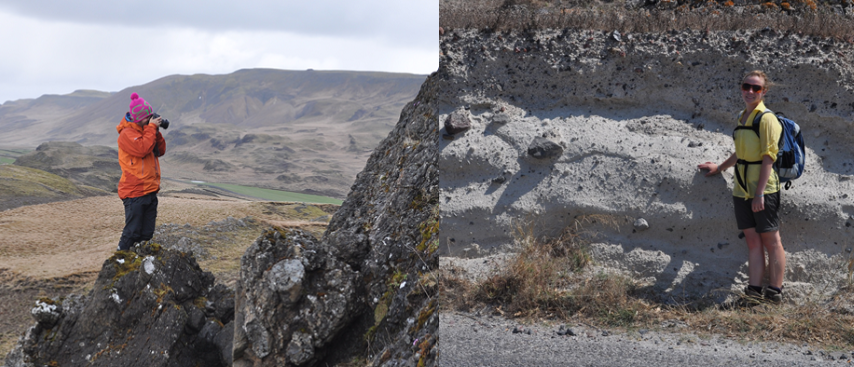PGR Away: Life in the jungle
As a geologist I have been fortunate enough to travel the world and conduct fieldwork in a whole range of different environments. From long days in the deserts of Washington (USA) and southern Spain to the cold, snowy conditions of Scotland and the Faroe Islands. It’s not just the climate that has varied, the terrain has too: from rough volcanic landscapes to choppy waters—I’ve worked by foot, boat and even a helicopter!
It’s not abnormal to have to carry a lot of equipment with you when you are out in the field. For example, any monitoring equipment or a hammer and things for collecting rock samples. And of course plenty of water, snacks, emergency equipment, clothes for all kinds of situations, or even camping and cooking equipment as well.
Fieldwork in this sense often takes a lot of time to organise. Firstly you have to plan a route and plan out the data that you will collect. You have to consider the terrain and how you will prepare for hazards or anything at all that could go wrong. Luckily there are forms and information available to help you prepare.
The Science and Engineering Graduate School also provides the opportunity for you to participate in an ‘outdoor fieldwork safety training’ course which is run by the British Association of Ski Patrollers (BASP). This is a hands-on 2 day course which includes indoor and outdoor scenario training for accidents and emergencies that could be experienced in any outdoor environment. I attended this course before conducting any fieldwork and I can highly recommend it, even if you already know basic first aid. You can find the course details for ‘fieldwork safety’ and general ‘emergency first aid’ in the Science & Engineering training brochure.
If you are travelling abroad for your research you also need to remember to apply for university travel insurance that will cover you if you get into any trouble while you are away.
Once everything is prepared and your travel is booked—and you are packed up with all your equipment—you’re ready to head out into the outdoors. Fieldwork can be great fun and you can learn a lot very quickly. It can also be a real endurance test. Geologists quite often get told that they ‘go on holiday a lot’… and this isn’t really true: fieldwork takes a huge amount of thought and motivation, particularly when the weather conditions are bad and the terrain is treacherous. It takes a lot of energy to keep safe, navigate, and collect all of the data that you need—all of which can make fieldwork extremely exhausting. There are huge benefits though, like being able to experience the culture and environment of a different country. Some of the most incredible views I have ever experienced have been during fieldwork, which makes it a very rewarding experience.
Links:
http://www.gla.ac.uk/services/seps/az/risk%20assessment/ - UofG risk assessment and health and safety documents and information all in one handy place
http://www.gla.ac.uk/services/finance/staffsections/insuranceandrisk/travelinsurance/ - information about university travel insurance and how to apply
http://www.gla.ac.uk/media/media_424864_en.pdf - Science and Engineering training brochure




